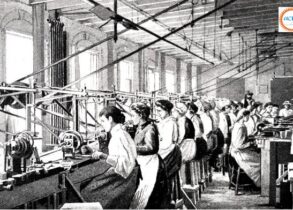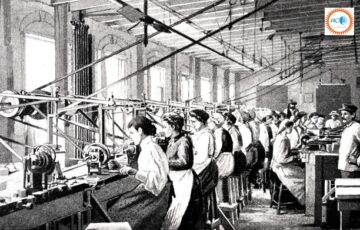What were the main causes and events of the French Revolution, and how did it shape the course of modern European history?
Approach
- Candidates may begin their responses by introducing the concept of the French Revolution. They may then list the causes—political, social, religious, and economic—while emphasising significant occurrences.
- Write about how it influenced modernism in Europe in the body.
Introduction
The French Revolution was a significant period in European history. It signalled a turning moment in human history. The venerable absolute monarchy, feudal rules, and social inequalities were abolished during the French Revolution. First-time introductions of concepts like “Liberty, Equality, and Fraternity” were made.
Body
Causes and events:
Political:
- Despotic rule: The Bourbon dynasty in France ruled despotically starting in 1553. All facets of society were alienated by the total concentration of power.
- Louis XVI’s incompetence: Since his succession in 1774, Louis XVI had to deal with a deteriorating financial situation that was made worse by the resources and personnel dispatched to support the Americans in their conflict with Britain.
Religious:
- Luxurious Clergies: France’s clergy were members of the upper class. They hardly ever paid taxes and strictly regulated people’s social lives. Clergy and their organisations, however, were rife with immoral behaviour, which infuriated the general populace.
- Reformist Protestants were a minority because of the dominance of Roman Catholicism. The clergy attacked them and even accused them of blasphemy because they supported changes.
Economic:
- Feudal economy: Both the government and the feudal system neglected and exploited agriculture. The Serfs’ uprising against the king was primarily motivated by the ongoing neglect.
- Merchants unsatisfied: France has a lot of mineral wealth. The Mediterranean seashore and numerous rivers, including the Sen, Rhoan, Luar, and Atlantic, were helpful for the growth of trade. However, merchants were quite dissatisfied with the monarchy as a result of unpredictable taxation and legal obstacles.
Events:
- They travelled to an indoor tennis court where they took the infamous Tennis Court Oath, promising to stay there until a new constitution had been written after being barred from the Estates-General assembly.
- In addition to dissolving the National Assembly and installing the Legislative Assembly in its stead, France was declared a constitutional monarchy.
Modern Europe due impact of French revolution:
- Nation State: Napoleon brought the Revolution’s principles of liberty, modern laws, democratic rights, and property protection to the rest of Europe. The development of Modern Nationalism as a result paved the path for the establishment of the independent nation-state.
- Declaration of Human Rights: The constitutional assembly published the declaration of human rights, which guaranteed political freedoms such as the right to own property and the freedoms of expression, press, association, and religion.
- Ideas of liberty, equality, and fraternity were born during the revolution and spread throughout Europe. These concepts, which promoted equality, freedom and democracy, and sound administration, originated in France and later expanded to other nations like Italy and Germany.
- Political Parties: By denouncing poor policies, these parties ensured that the government remained in control.
Conclusion
In building the groundwork for modern states based on Liberal Democratic ideas, the French Revolution was crucial. Additionally, by creating a social and intellectual climate in which Socialism and Communism could thrive, it indirectly paved the way for their development.






